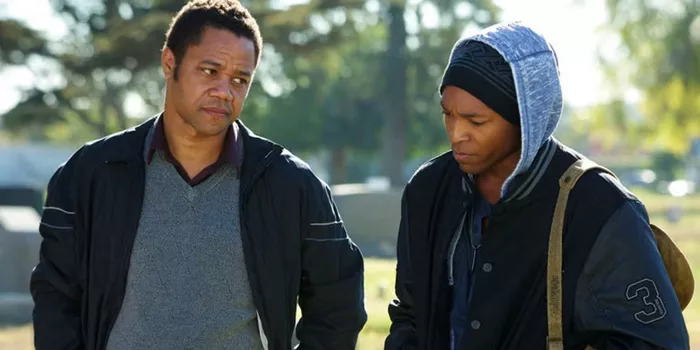In the ever-evolving world of streaming entertainment, unexpected gems have the chance to shine, and the tale of “Pawn to Victory” is one such story. This $44,000 indie drama film, inspired by the remarkable true story of Eugene Brown, the founder of the Big Chair Chess Club in Washington, D.C., has astoundingly become a Netflix sensation. With the title change, “Pawn to Victory” has catapulted itself to the top 5 on Netflix’s worldwide charts, garnering a remarkable 6.3 million views.
From Obscurity to Stardom
While “Pawn to Victory” garnered little attention during its initial theatrical release, its dramatic rise to fame on Netflix has stunned both critics and audiences alike. The film, shot on a shoestring budget, delves into the inspirational journey of Eugene Brown, portrayed with depth and charisma by an outstanding cast.
The story unfolds as Brown, recently released from prison, seeks redemption and a fresh start through the game of chess. The film expertly weaves a narrative that explores second chances, personal growth, and the transformative power of the strategic board game. Despite its financial limitations, the film has succeeded in resonating with audiences worldwide.
A Global Sensation
What makes “Pawn to Victory” even more remarkable is its international reach. The film’s newfound popularity on Netflix has transcended borders, capturing the hearts of viewers in more than 20 different countries. Its appeal extends from the United States to far-flung regions like Brazil and Mexico, where the story of Eugene Brown and the Big Chair Chess Club resonates with viewers from all walks of life.
Audiences from diverse cultural backgrounds have found common ground in the film’s underlying message of hope, determination, and the universal language of chess. “Pawn to Victory” has struck a chord with viewers, proving that great storytelling transcends geographical boundaries.
Netflix’s Platform for Hidden Gems
The success of “Pawn to Victory” is a testament to the power of streaming platforms like Netflix to bring hidden gems to the forefront. Independent films, often overlooked in traditional theaters, have found a new lease on life in the digital era. Netflix’s global reach and diverse viewer base offer a unique opportunity for lesser-known projects to shine and gain the recognition they deserve.
As “Pawn to Victory” continues to climb the charts and inspire viewers worldwide, it’s clear that platforms like Netflix play a crucial role in reshaping the film industry. This is a platform where the storytelling prowess of indie filmmakers and the talent of lesser-known actors can reach a global audience, proving that a compelling story can captivate millions, regardless of its budget or origins.
An Unconventional Triumph
The unexpected success of “Pawn to Victory” serves as a reminder of the importance of nurturing unconventional stories that may not fit the typical Hollywood mold. The film’s journey from obscurity to international recognition underscores the power of storytelling and the enduring appeal of narratives that inspire, uplift, and resonate with a broad spectrum of viewers.
The film’s financial constraints during production make its triumph even more compelling. It’s a testament to the dedication and vision of the filmmakers and cast who believed in the story of Eugene Brown and the transformative potential of chess.
A Beacon of Hope
In a world filled with blockbusters and big-budget spectacles, “Pawn to Victory” reminds us of the power of a heartfelt, authentic, and inspirational story. It’s a beacon of hope for independent filmmakers, actors, and storytellers who dream of sharing their narratives with the world. The film’s success on Netflix is a testament to the enduring allure of films that touch the heart and stir the soul.
As “Pawn to Victory” continues to captivate audiences and inspire viewers worldwide, it sends a clear message: a great story knows no boundaries, and with the right platform, even the smallest budget can achieve remarkable success. The film’s newfound recognition on Netflix is a triumph not only for the filmmakers but for the power of storytelling itself.

